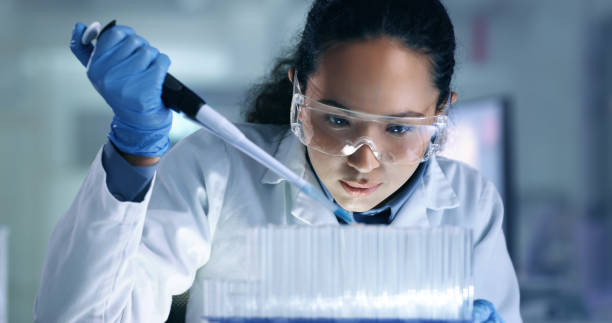Modern food production and sustainable patterns rely on biotechnology which is important enough. Through this article, the application of biotechnology in the agriculture sector will be considered- its importance, drawbacks, and prospective looks in the future.
What is Biotechnology in Food Production?
Biotech in food production, a. k. a. food growth through science means conducting genetic manipulations and changing crops and animal breeds by scientific methods. It is the field of bioprocessing or technologically using biological entities for preparing new products within the agricultural sector.
Benefits of Biotechnology in Food Production
Increased Crop Yields: Biotechnology has already brought about genetically engineered crops for increased resistance to pests, diseases, and stress from the environment. They are more productive which means the vegetation can carry a higher yield per hectare.
Improved Nutritional Content: Genetic engineering has been applied to upgrade the nutrient content of edible crops including Vitamins, minerals, and proteins to this list.
Reduced Environmental Impact: Implementation of biotechnologies can allow agriculture to have a lower impact on the environment through the application of eco-friendly pesticides and fertilizers, water conservation, and reduction of greenhouse gas emissions.
Enhanced Food Quality: Biotechnology has led to the development of crops with improved quality traits, such as longer shelf life, better taste, and texture.
Challenges of Biotechnology in Food Production
Biotechnology used in food production may encounter some difficulties that have to be considered because its sustainable and responsible use is needed.
Safety Concerns
Genetically modified organisms (GMOs) in food production’s main issue is the way how biotechnology handles safety concerns associated with GMOs. Health experts and scientists are still investigating the full benefits or potential risks of GMOs over the long term. Whilst remaining one of the top priorities for regulatory bodies and science communities, the problem of the safety of GMOs for human consumption is still being addressed in several institutions.
Regulatory Hurdles
Biotechnology products, namely GMOs, must pass their way through complicated bureaucracy under many regulations in many countries. A long-time-consuming and costly path for animal and environmental regulation can prevent biotechnology products’ development and sales. Aligning regulations, focusing on ethics, and enhancing the overall regulatory procedure should be the driving forces behind ethical food production applying biotechnology.
Ethical Considerations
The biotechnology application to the food production process brings a lot of ethical concerns, especially regarding the rights to the ownership and domination of genetic resources. As a whole, it is considered that biotechnology has an impact on traditional farming methods and representations of small-scale farmers. For morals and norms to be used prudently, ethical frameworks and guidelines are a necessity that will guarantee that biotechnology is used responsibly and equitably.
Environmental Impact
Even though biotechnology serves several purposes aiming to decrease the impact of agriculture on the environment such as by cutting the use of chemical pesticides and fertilizers, it also highlights several unintended insinuations of the environment. For instance, the creation of crops that are no longer affected by the deteriorating effect of herbicides has resulted in the development of herbicide-resistant weeds which due to this reason contributes to the intensive use of herbicides. It is crucial to thoroughly calculate how technological products and practices’ productions affect the environment to decrease the negative effects.
Public Perception and Acceptance
Public perception and acceptance of biotechnology in food production are significant challenges. There is often skepticism and fear surrounding GMOs, driven by concerns about health and environmental risks. Educating the public about the science behind biotechnology and its potential benefits is crucial to gaining trust and acceptance.
The Future of Biotechnology in Food Production
While biotechnology is not immune to challenges, it is an agent of change that can lead us to the future of food sustainability. Research and development in biotechnology are expected to go on, which will, as a result, bring various resilient crops, improved livestock health, and sustainable organic practices.
Also Read: How Can You Advocate Effectively for Your Health?
Case Study: Golden Rice
Genetically altered rice called Golden Rice was engineered to generate beta-carotene that provides vitamin A precursor. It was designed to fix the widespread prevalence of vitamin A deficiency in populations, particularly the poor and marginalized in developing countries who rely on rice as their main staple food.
With its reduced tendency to reduce the occurrence of malnutrition and the incidence of blindness and other health problems associated with vitamin A deficiency, golden rice has the potential to improve the health condition of vulnerable populations and to alleviate the health burden on economies that struggle with limited resources.
Conclusion
Biotechnology can play a pivotal and breakthrough role in the future of food production and sustainability. Biotechnology finds a resolution in exploiting the essence of biological machinery and living organisms to respond to food security concerns on a global scale, enhance the level of nutrition thereby mitigate any detrimental risks that food production may bring. But, these safety, regulation, and ethics matters should be taken care of for biotechnology to reach its unlimited capabilities in food production.
